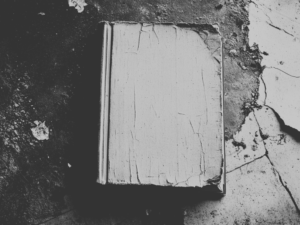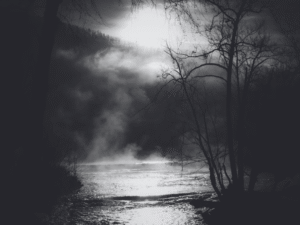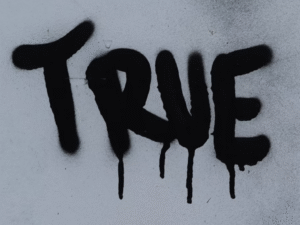
Book Review: The Bird Room by Dawn Gorman Turns Grief into Wingbeat Memory and Tender Resistance
Dawn Gorman’s The Bird Room, published by The Hedgehog Poetry Press, is a devastating modern poetry collection that builds its emotional gravity

When did you first feel like a writer?
As much as I loathe to say this because God knows we don’t need any more imposter syndrome in this industry, but I’d be lying if I said anything other than when I received the acceptance email for my debut poetry collection The Ox House (Penteract Press, 2022) was the first time I ‘felt’ like a writer – or, at least, the first time I felt like I could call myself a writer without feeling like I was self-mythologising or posing. Maybe it shouldn’t be, but external validation for your work really is validating! I had previously published dozens of poems and several stories before, my story ‘To Be Seen’ had won Nottingham UNESCO City of Literature’s ‘MyVoice’ competition, and I’d even helped edit and publish Nottingham Poetry Exchange’s second Voices anthology, but the publication of The Ox House felt like ‘making it’ – like everything before was an apprenticeship; this was the job itself. Not that I’m saying it’s right to feel like this – writers are people who write, after all, not people with books out – but I felt my self-definition of ‘being a writer’ suddenly affirmed.
What’s the most interesting thing that has inspired your writing and what was the result?
When I was in my final year of university I developed a probably predictable interest in the work of Pablo Picasso. I just found how he revolutionised painting – not just the art form in large but his own style – time after time absolutely remarkable, inventing (or helping to invent) entire new visual languages that truly reframed the way we look at the world. Cubism, which allowed the viewer to see the subject from multiple angles and points of view simultaneously, has been applied to literature before but I’m not sure the written word, whose interpretation is more temporal than immediate, can ever quite replicate the immediacy of visual Cubism. That didn’t stop me from trying, though, and though I didn’t achieve this – and I don’t think I’ll ever invent a new form that changes how we look at the world – my fascination with Picasso inspired me to move away from traditionally lineated poetry towards a more visual form. Maybe my vispo isn’t quite as revolutionary as Picasso’s paintings, but I can chart when I started playing around more with form and space and graphology to that initial interest.
On top of making poems visually interesting, other major concerns of mine are the history of the written word – The Ox House channels the ghosts of Ancient Egyptian temple walls and Medieval illuminated manuscripts – and the materiality of books. A visit to the British Library’s 2019 Writing: Make Your Mark exhibition prompted my interest in the history of the alphabet, birthing the idea of what would eventually become The Ox House, a work that celebrates every letter and their histories. My current vispo project I Imagine an Image focuses more on exploring the book as a physical object: some of the poems require the page to be turned in the readers’ hands to be fully comprehended; some meanings emerge only when the book is rotated; some poems are ‘double poems’ that read differently up from down, left from right. There’s a puzzle in The Legend of Zelda: The Phantom Hourglass for the Nintendo DS where you have to actually close the shell-designed console’s dual screens together to ‘stamp’ a map on the bottom screen, breaking the fourth wall and drawing the player’s attention to the medium through which they were immersing themselves into the game’s world. This is one of the few instances of video games alerting the player to the console’s own materiality, and similar things have been explored in literature before (Danielewski’s The House of Leaves, for example), but in a response to NFT poetry and poems that are viewed through the screen, I really wanted I Imagine an Image to justify the book as a physical object: there’s one visual poem in it that forms a different, unseen visual poem when the pages are closed, and I think I must have been sub-consciously inspired by The Phantom Hourglass when making this one.
Paint us a picture: what does your writing process look like? Do you write in coffee shops at night or only on an old type-writer?
I’m a pen-and-paper person, mostly, but when working on my visual poetry project I Imagine an Image (which is currently seeking a home), I spent long evenings in front of my laptop messing about on Canva and playing with the placement of words. I tend to steal time to write poetry, rather than disciplining myself: often a line or an image worms its way into my head, I note it down and work on it when I can. Often I’ll complete a draft in one go and type it up, edit it as I’m typing it up, then edit it again. When I’m writing fiction or non-fiction, I do need to dedicate dedicated time to the writing process: poems aren’t necessarily easier to write than prose but if they were one of the reasons would be because of their brevity!
Describe your ideal reader: who would your work speak to?
I don’t want an ideal reader. I want everyone to read my work. There’s a common belief in the UK that poetry has become insular, that it’s only read by linguists and poets, and I want to be one of the writers who break this idea. I want my vispo on walls, sold as art prints, on postcards, on t-shirts… I want my more traditional verse in GCSE anthologies, broadcast on the radio, reproduced in diaries, scrawled on exercise books like song lyrics… I want poetry (not just my own!) to be everywhere. I want it to be as omnipresent in culture as music. I don’t think poetry has to make itself more ‘accessible’ to achieve this – a word I hate in this context (accessible to or for whom? what sort of things are we presupposing about people who do not read poetry here?) – but I don’t think it’s a sin or disingenuous to want a wider audience.
Who’s an author you’ve changed your mind about and why?
The first time I read The Great Gatsby, around 2013 and the time of the great Gatsby revival that coincided or was sparked by the release of the Baz Luhrmann film, all I could think about was: well, what is so great about Gatsby? It’s a book I’ve revisited it many times since and every time I’ve re-read it I’ve admired it more and more – like falling in love slowly, rather than at first sight, as its inner clockwork reveals itself infinitely complex and beautiful. There’s a remarkable deftness and leanness to it I’d like to achieve in all of my work. So I found Fitzgerald boring and then I loved him, and I read and loved all his books. Now, when I try to revisit anything of his other than Gatsby I wonder what I was thinking, so I’ve changed my mind about him twice! But I still think Gatsby a masterpiece.
If you could interview any other writer/artist, who would it be and why?
I recently watched The Andy Warhol Diaries on Netflix and I found his approach to art as a commercial industry interesting and enlightening. I think there’s a lot that poets could learn from his various ways of approaching and showcasing art and if time travel were possible I’d make sure to interview him to selfishly secure some tips on how to make poetry more visible in the world! If he could make painting a big part of popular culture, I’m sure poets could do the same with our art. If I could interview any living writer, I’d choose Ali Smith – I’m a great admirer of her writing – to me she is the greatest novelist writing in the English language, not just today but quite possibly of all time – and her interviews are always so generous and thought-provoking. I just think we’d end up having really interesting conversations about art and life and the novel, and interesting conversations are a big part of what it’s all about.
What motivates you to keep writing?
Extrinsically, absolutely nothing. Even as I’m ostensibly seeing more ‘success’ (having books accepted for publication, being asked to host writing workshops, being invited to perform at festivals) as a writer now than I ever have before, it’s increasingly difficult to feel extrinsically motivated to write in a country that acts so hostile towards its artists. The rising cost of living in the UK is a crisis that feels like it’s climbing to some sort of crescendo that has to fall, but in the meanwhile when wages are stagnating and inflation is rising and the cost of necessities increase and the rich get richer while hoarding wealth and tax is spent not on helping ordinary people who are struggling or supporting artists – a conscious decision because art questions authority – but in paying MPs’ expenses and upholding the bastion of imperialism that is the Royal Family, the idea of being an artist is bleak. We have to work jobs which take time and energy and make finding the time to write difficult, and there is nothing romantic about poverty. But despite this I write because I love writing, because I find solace in playing with words and seeing what they can and cannot do, how they construct and deconstruct worlds. I think anyone going into writing – and into writing poetry especially – for fame or riches or glory will find themselves disappointed, sorely and quickly. It sounds cliched but I can’t not write: when I get a line or an idea or an image in my head, I have an impulse to plant the seed of it, nurture it, and watch it grow.
How do you deal with writer’s block or being overwhelmed by the writing process?
I feel lucky in a way because I don’t think I’ve ever experienced writer’s block. I pretty much consistently have several writing projects on the go, and often the difficulty is choosing which one to pursue and which ones to let go because there isn’t enough time in the world to write them all. I do definitely get overwhelmed when writing prose – writing a novel was the most emotionally draining experience of my life – but I like how manageable writing poetry is. Another way I avoid feeling overwhelmed is by reminding myself that everything is practice – I feel like artists put so much pressure on themselves to create something publishable/displayable/listenable/watchable, but every thing we write or paint or make or film is a lesson, and we can learn as much from finding out what doesn’t work as we can from finding out what does. Feeling like you’re writing something for publication is overwhelming; writing poetry that you know might not ever see the light of day is consoling.
Where would you like to see yourself in a decade? A creative writing teacher? As a best-seller?
I’ve been asked this question before and joked that I’d love to write one critically-acclaimed best-selling novel and then disappear into the ether, but I don’t think this is actually true. I’ve fantasised about earning enough to be a full-time writer, but truth be told I’m not sure I’d be able to handle the lack of routine! My dream job, if I had to have one, would be being a Creative Writing Lecturer at a university – but anyone familiar with the current UK Conservative government’s treatment of the Arts and Humanities will understand why this feels bleakly unobtainable.
What has your work taught you about yourself?
That I want to remain forever interested. I’m a glutton for literature and books that try different things and I think every thing I have ever written is to some extent a response to or a love letter to some thing else by some one else I have loved and admire. Reading is immensely more joyful than writing and I hope I never get stuck in a literary runt: I want to be forever curious, forever excited, forever inspired.

Dawn Gorman’s The Bird Room, published by The Hedgehog Poetry Press, is a devastating modern poetry collection that builds its emotional gravity

Reanimating the sublime spirit of the mythic storyteller Guest Reviewer: Glenn Barker Moon Kissed Earth Wrought Vision Drunk, “for the ancient among

Transgression isn’t provocation. It’s not about being edgy. It’s about truth-telling when every instinct screams “don’t.” It’s the line that makes your
The Broken Spine is a poetry and arts collective proudly published on the coastal edge of North-West England. Founded in 2019 by Alan Parry and Paul Robert Mullen – two school friends reunited after twenty years through a mutual love of poetry.